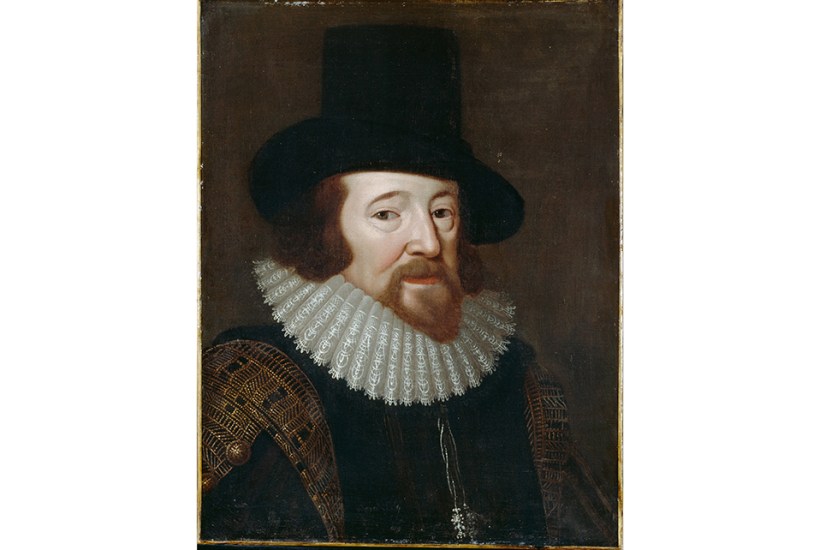The philosopher and statesman Francis Bacon wrote: ‘All rising to great place is by a winding stair.’ This historical novel is about him and his use of it. The way up is long, intricate and difficult; downwards there is nothing to ‘slow his fall’. His antagonist in his ascent to worldly power was the lawyer Edward Coke. Bacon rose to be lord chancellor of Great Britain. Coke became attorney general under James I. Both fell from grace.
It is a political story. Judging from what has been happening recently, nothing has changed. Ambition, ruthless achievement, favour, bribery, corruption and betrayal are the features of the political world. Jesse Norman’s novel is about Bacon’s political career, not about him as a natural philosopher. He is portrayed as a Vicar of Bray figure. The Earl of Essex is the patron to whom he is entirely loyal until (to quote one of President Nasser’s generals) ‘the time for treachery arises’. Bacon is instrumental in the prosecution, trial and execution of Essex. Royal interests are paramount.
Coke regarded himself as the superior jurist, and the two lawyers took opposing sides over the issue of prerogative. Bacon, with his view always to advancement, adhered to the royal prerogative. Coke was the proponent of parliamentary prerogative. The argument eventually led to the English Civil War.
The narrative, constantly changing between past and present tense, is reminiscent of Hilary Mantel’s storytelling. Norman creates a similar historical atmosphere from meticulous research. He commands masses of detail about Elizabethan and Jacobean government and law, using idioms and expressions appropriate to the time: ‘I am like a hawk, that bates, when I see occasion of service, but cannot fly because I am tied to another’s fist.’ King James is concerned about ‘thefteous stealing’ and Bacon ‘can turn a sentence as can few others’. That is also true of the author, in this tale of ‘power and purpose’.
Norman is a man of many parts – classicist, philosopher, academic and government minister under both Theresa May and Liz Truss – to which now must be added novelist. He writes with a deep knowledge of parliament – ‘the happenings, the plots and counterplots, the subterfuges and stratagems’. This tour de force reflects his direct experience of the winding stair.
Got something to add? Join the discussion and comment below.
Get 10 issues for just $10
Subscribe to The Spectator Australia today for the next 10 magazine issues, plus full online access, for just $10.
You might disagree with half of it, but you’ll enjoy reading all of it. Try your first month for free, then just $2 a week for the remainder of your first year.








Comments
Don't miss out
Join the conversation with other Spectator Australia readers. Subscribe to leave a comment.
SUBSCRIBEAlready a subscriber? Log in